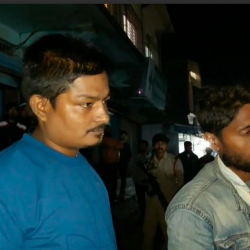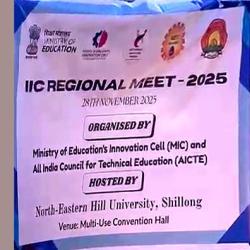Thirty percent of all new HIV infections in Asia are associated with injecting drug use, estimates the joint United Nations Programme on HIV/AIDS (UNAIDS).
Nearly half of the world's estimated 13 million drug users live in Asia where injecting drug use is a major factor fuelling HIV transmission. Most of the global supply of opium and heroin is produced in Asia where vulnerable groups who inject drugs form a significant population engaged in high risk behavior such as sharing contaminated injecting equipment and unprotected sex leading to HIV infection.
Some Asian countries report HIV prevalence among injecting drug users (IDUs) as high as 85% while others that previously reported little or no HIV transmission relating to IDUs have now detected the virus among this population.
For the first time in Asia, AIDS experts, parliamentarians, civil society and drug user organizations come together for a consultation in Goa, India, on HIV prevention and treatment for drug users. Organized by the Asian Consortium on Drug Use, HIV, AIDS and Poverty, the consultation draws more than four hundred delegates from 27 countries to address political, legal and social barriers to HIV interventions for IDU communities and to advocate for expanded harm reduction programs promoting drug substitution treatment, access to needle and syringe exchange and peer education that has proven effective in stemming the spread of HIV.
"We will address the vulnerability related to drug use and HIV/AIDS affecting millions of people in Asia and the related social hazards including criminalization, incarceration and their linkages to poverty," said Luke Samson, Co-Chair of the consultation and Executive Director of the New Delhi based advocacy group SHARAN.
Across the region, criminalization of drug use, severe stigma and discrimination and law enforcement that marginalize and penalize drug users have driven them underground and deterred their access to life-saving HIV prevention and treatment services.
Gary Lewis, Representative United Nations Office on Drugs & Crime (UNODC) stressed successful models of community-based HIV prevention through outreach and counseling need to be adopted to address AIDS as a social as well as public health issue. "In Asia, the need of the hour is to scale-up interventions to reach out to populations at risk and to save lives. We know what to do, but we need to do more of it."
The consultation is reviewing the alarming spread of HIV in prison and custodial settings and advocate for reformed legislation, engagement with law enforcement and narcotics agencies and national AIDS policies that include services for incarcerated people and those in compulsory rehabilitation programs.
"We must ensure access to prevention and treatment services and protect the rights of most at risk populations such as people who inject drugs by involving them and their communities in every stage of the AIDS response," said UNAIDS Asia Pacific Regional Director, Prasada Rao.
"Regional collaboration for HIV preventions is the most effective mechanism to combat the growing pandemic. This consultation is a unique opportunity to generate enduring solutions to HIV and AIDS issues affecting drug users across Asia," said Shri Oscar Fernandes, Minister of State for Labour and Employment, Government of India, and Convener of Parliamentary Forum on HIV/AIDS in India.
The Asian Consortium on Drug Use, HIV, AIDS and Poverty is a voluntary network on collective issues of HIV prevention, access to health, food, harm minimization and mainstreaming towards poverty alleviation among drug using populations in Asia.
(Citizen News Service)
- 62278 reads









Add new comment